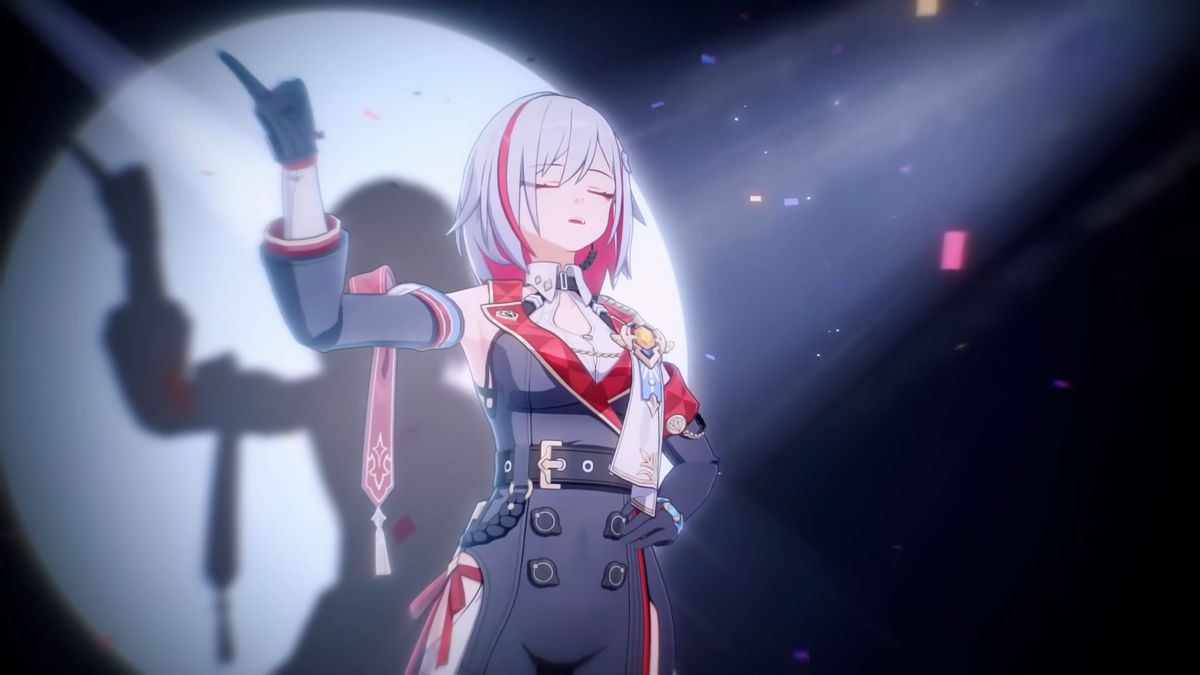Honkai Star Rail devs explain how they filled the RPG with Chinese memes adapted for an English-speaking audience
"We find suitable English alternatives or create our own," Hoyoverse says

Honkai Star Rail is a Chinese game built with a global audience in mind, which can force developer Hoyoverse to get creative about translating cultural and pop culture references, which sometimes involves pinning it all on Guns N' Roses.
In a recent issue of Play magazine, Hoyoverse touched on the localization process and the unique challenges that come up in an RPG so steeped in references and phrases rooted in not just Chinese society but sometimes literally Classical Chinese language.
"The game unfolds within a world as expansive as the cosmos itself, boasting a plethora of diverse content, from an abundance of readable items that delve deep into the lore to dialogue-heavy interactions brimming with quippy humor, interesting characters, funny memes, relevant pop culture references, and relatable slang and idioms.
"Specifically, when it comes to Chinese pop culture references or memes, we find suitable English alternatives or create our own based on the context or setting of the game. For example, there is an in-game achievement that pays tribute to a song by Jay Chou, a well-known singer among Chinese speakers. Obviously, this reference would be lost on the average English reader if translated literally. Therefore, we translated it as 'Sweet Pom-Pom O'Mine' as a tribute to the classic rock song by Guns N' Roses. This name not only mirrors the original authorial intent but also hints at this specific achievement's connection to Pom-Pom."
Honkai Star Rail players have picked up on modernized lines like this since the game's release; the English version, in particular, frequently folds in modern Western meme culture. Other bits are explained rather than replaced where appropriate. Hoyoverse points to new five-star Destruction character Jingliu as one example.
"Another point perhaps worth mentioning is Honkai: Star Rail's extensive usage of the Classical Chinese language and how we handle it in the localization process. In the game's development, an often overlooked yet critical aspect lies in capturing the essence of cultural nuances. This holds particularly true when translating a highly contextual and gracefully laconic language such as Classical Chinese. Preserving the distinct tone, style, and evocative nature of this ancient tongue proves to be a time-consuming endeavor. In addition, achieving this necessitates a meticulous and creative process.
"Take, for instance, Jingliu's signature weapon, a sword named 'Tanhua', which translates literally to 'flower that blooms quickly and lasts briefly'. This poetic euphemism, deeply rooted in Chinese literature, draws inspiration from a species of flower [...] known as the 'Queen of the Night.'"
Sign up to the 12DOVE Newsletter
Weekly digests, tales from the communities you love, and more
In-game, Jingliu's signature five-star Lightcone – which is part of the game's gacha gear system, and not literally the sword she wields in her hands – is called 'I Shall Be My Own Sword.' Its description seems to echo the themes of its Chinese source, with one passage reading:
"'From now on, I shall be my own sword.'
"To transcend perceived precipices and achieve unprecedented breakthroughs, one must regard themselves as 'kindling' to fuel their own fire."
Per our Honkai Star Rail PS5 review, the turn-based RPG has made a gorgeous leap to consoles.

Austin has been a game journalist for 12 years, having freelanced for the likes of PC Gamer, Eurogamer, IGN, Sports Illustrated, and more while finishing his journalism degree. He's been with 12DOVE since 2019. They've yet to realize his position is a cover for his career-spanning Destiny column, and he's kept the ruse going with a lot of news and the occasional feature, all while playing as many roguelikes as possible.

Years before we learned of Like a Dragon: Pirate Yakuza in Hawaii, Majima's voice actor pitched a JRPG about the fan-favorite anti-hero and was told "that's not going to happen"

Final Fantasy 7 Rebirth PC players are already using mods to control all 9 playable characters, including Sephiroth and Zack, at the same time
Most Popular


